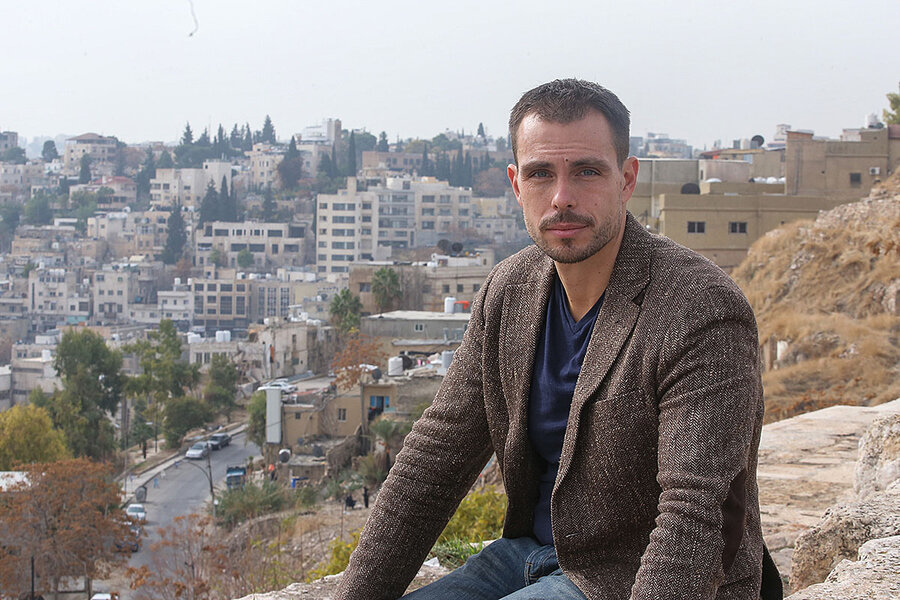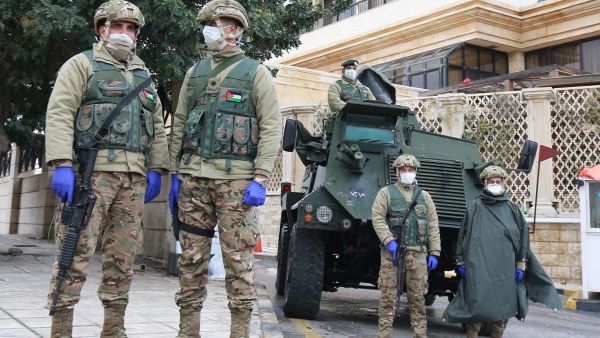Military units were deployed in checkpoints and in patrols to ensure nobody would be outside without authorization to do so. The government, which had been implementing austerity measuring cutting back public spending in an attempt to decrease its debt, announced that it would be distributing essential food, water, and medical supplies to inhabitants now stuck in their homes.
Jordan’s full-scale national lockdown early in the outbreak was possibly the strictest on Earth. And while its political and economic repercussions may be felt in the months ahead, for now, the protocols appear to have wrestled the rate of new cases per day down to nearly zero.
“They don’t have the finances to open up and then close, and then open up and then close and endure a malaise for several months or a year,”
Today I’ll be speaking with Taylor Luck, a Middle East correspondent with the Christian Science Monitor, about the quarantine protocols Jordan has developed, and how its center-staging of the military and monarchy may expose both institutions directly to a coming wave of grievances if the predicted economic turbulence is not adequately contained.

(Taylor Luck, courtesy of Christian Science Monitor)
Because Jordan’s economy and public finance were already stalling, Luck says that the government’s decision to deploy the military was a first and last resort.
“They don’t have the finances to open up and then close, and then open up and then close and endure a malaise for several months or a year,” he explains, adding that a swift and harsh lockdown may have temporarily halted the need for long-term economic shutdown.
Jordan sees it as a one-time measure to prevent further economic instability, Taylor posits.
“But a few months down the line if the economy does not turn around, and we’re still seeing struggles of people adapting to this new way of life, how are people going to express this opposition?”
Meanwhile, the country remains committed to implementing austerity measures recommended by the International Monetary Fund (IMF), which have thus far caused sporadic outbreaks of social unrest as Jordanians perceive the cuts to the public sector and an increase in taxes as obstacles to achieving economic stability.
Politically speaking, the growing perception in Jordan is that the monarchy and military are the two prime agents keeping COVID-19 contained and the economy afloat, while the fledgling parliament is increasingly perceived as a “nuisance,” standing in the middle of a political channel between Jordan’s inhabitants and the state.
“I think the state: specifically the royal palace, the military and the government deserve this good-will and support, because it has been a very successful venture.”
“I think the state: specifically the royal palace, the military and the government deserve this good-will and support, because it has been a very successful venture.”
“But a few months down the line if the economy does not turn around, and we’re still seeing struggles of people adapting to this new way of life, how are people going to express this opposition?” Taylor asks.
While Taylor does not predict an outbreak of violence from economic instability, as is happening in Lebanon, he does argue that the Jordanian state will have to inevitable face a choice: continue leveraging its position as the most visible political force navigating the country through this crisis, exposing it to political flak in the process, or retreating and allowing parliament to resume its customary role as the intermediary between the public and the state.
To listen to the full conversation, click here:








